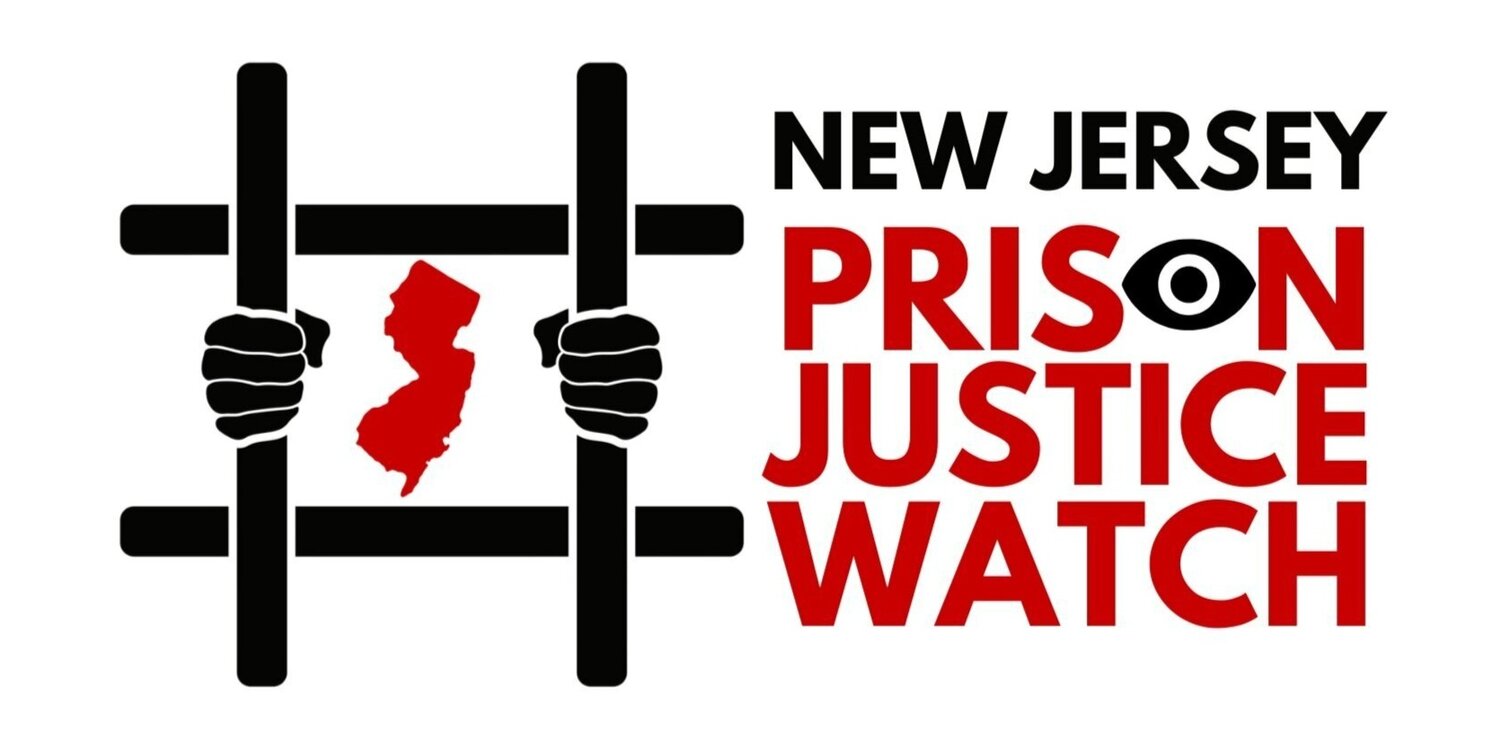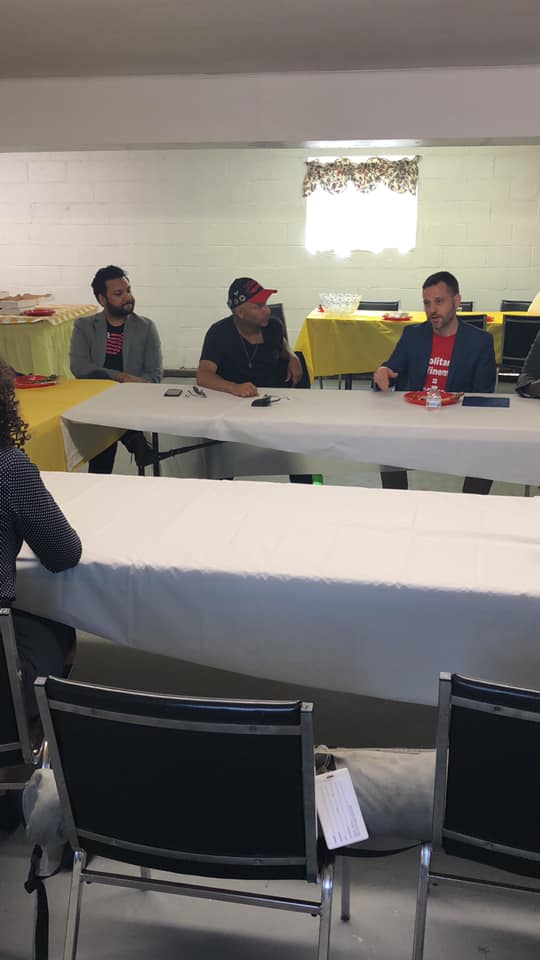Gov. Murphy answers call for change from advocates and solitary survivors
New Jersey cemented its place as a national leader in criminal justice reform with Governor Phil Murphy signing the Isolated Confinement Restriction Act (A314/S3261) into law. Following an advocacy effort led by survivors of prolonged isolation that has spanned the better part of the decade, solitary confinement will now be strictly limited in the Garden State.
“The agony of solitary confinement is that it doesn’t just lock up your body – it locks in your mind. For New Jersey to institute dramatic restrictions on solitary acknowledges the suffering we’ve endured, along with the scars we’ll bear for the rest of our lives. I’ve said before that solitary confinement is pure evil, incapable of resulting in anything but dehumanization and degradation – but as of today, I can point to one very small exception: all that I went through strengthened my voice to bring us closer to the goal of ending this diabolical practice once and for all,” said Nafeesah Goldsmith, a community organizer and a survivor of solitary confinement.
On July 10, a day before the signing, advocates with ACLU-NJ and the New Jersey Campaign for Alternatives to Isolated Confinement delivered an open letter to Gov. Murphy urging him to make the bill law. The letter’s 682 signatories included prominent national and local organizations – including the American Friends Service Committee, Amnesty International USA, Human Rights Watch, and the National Religious Campaign Against Torture – along with hundreds of individuals throughout the state and the country. Altogether, 19 national and international organizations, 76 New Jersey-based organizations, 13 organizations from other states, 37 faith congregations, and 537 individuals joined forces through the letter to urge Gov. Murphy to sign the bill into law.
“To live in prolonged solitary confinement is to be denied your basic humanity, and to experience such extreme loneliness that it can feel as if the world has forgotten you,” said Justice Rountree, an organizer with NJ-CAIC and a survivor of prolonged solitary confinement in New Jersey. “Today, because of Gov. Murphy’s signature, those who have ever been in solitary, and those who are held in isolated confinement now, know they are not forgotten. Survivors of solitary know that because of their collective efforts, New Jersey will no longer maintain the status quo of their suffering.”
Once the law goes into effect, on August 1, 2020, New Jersey law will prohibit prisons and jails from keeping anyone in solitary confinement for more than 20 consecutive days or longer than 30 days during a 60-day period. It also prohibits any use of solitary confinement for certain vulnerable populations, such as people living with mental illness, people who are pregnant, and people who are LGBT.
“I’m immensely proud to be a New Jerseyan today,” said Lydia Thornton, a survivor of solitary confinement who spent over nine months in isolation. “Governor Murphy has heard our collective call for change, and he has answered by signing a bill that begins placing restrictions on this unjust practice and places the Garden State as a national leader on criminal justice reform.”
The new law demands mental health evaluations before and during placement in solitary confinement, requires data collection and reporting, and requires both state prisons and county jails – including those that have immigration detention units – to ensure these important protections.
“Governor Murphy’s decision to enact the Isolated Confinement Restriction Act into law is one that goes far beyond signing a bill – it will be felt by every person living with the lifelong pain of prolonged isolation. With this monumental step toward justice, I’m hopeful for the day when the suffering of solitary confinement, past and present, will be a distant memory,” said Ron Pierce, the democracy and justice fellow at the New Jersey Institute for Social Justice and a survivor of solitary confinement who spent four years in isolation.
According to the United Nations, prolonged isolation can amount to torture, and survivors of solitary confinement have continued to echo that same warning.
This law is a testament to its driving force: the voices of survivors of solitary confinement who led this movement to stop the suffering they were forced to endure. No law can make up for the lives that have been lost – no policy can reclaim the futures that have been sacrificed to the torment of prolonged solitary confinement – but this law acknowledges that no one deserves to forfeit their humanity in long-term isolation. This turning point for New Jersey is a milestone in a powerful, unyielding national movement. We know New Jersey’s historic step forward will inspire advocates and lawmakers throughout the country to make prolonged solitary confinement a thing of the past. We applaud Governor Murphy and the Legislature, particularly prime sponsors Senators Nellie Pou and Sandra Cunningham, and Assemblymembers Nancy Pinkin, Shavonda E. Sumter, and Valerie Vainieri Huttle, for prioritizing humanity by passing and signing this bill into law,” said ACLU-NJ Executive Director Amol Sinha.
When a similar bill passed the state Legislature in 2016, Governor Chris Christie vetoed the legislation, falsely claiming that solitary confinement was “a problem that does not exist in New Jersey.” Governor Murphy’s decision to sign the Isolated Confinement Restriction Act recognizes what survivors have said all along: solitary confinement is immoral, inhuman, and must become a practice of the past.
“The voices of survivors of solitary confinement, and their strength in summoning up some of the worst moments of their lives to stop the routine use of prolonged isolation, have been the moral ballast responsible for making these historic restrictions law. The power of this movement – led by survivors who have refused to stand by while others experience the agony of prolonged isolation – can serve as a guide for others around the nation to act on the imperative of ending long-term solitary confinement,” said J. Amos Caley, lead organizer of the New Jersey Campaign for Alternatives to Isolated Confinement.
With the Isolated Confinement Restriction Act now law, New Jersey has recognized that solitary confinement causes lifelong harms no matter the name. As the Garden State begins to implement these necessary restrictions and important protections, the ACLU-NJ and its partners will work to keep protections as strong as possible during implementation, along with advocacy to ensure that county jails and state prisons follow the law.
“The far-reaching impact of our advocacy shows that not only are we making monumental strides in criminal justice reform here in New Jersey, but other states are poised to follow closely behind,” said ACLU-NJ Staff Attorney Tess Borden. “Survivors of solitary confinement have dedicated their lives to informing and educating those in power about the lifelong harms of isolation, and we’re proud of our lawmakers for heeding their call in the Garden State.”
The New Jersey Campaign for Alternatives to Isolated Confinement formed as a coalition of survivors and organizations in 2012, with an array of national, state, and local organizations among its membership: the American Civil Liberties Union of New Jersey, American Friends Service Committee Immigrant Rights Program, American Friends Service Committee Prison Watch Program, Amnesty International USA, Association of Black Psychologists - New Jersey Chapter, Campaign to End the New Jim Crow - Trenton and Princeton Chapter, Community Legal & Advocacy Services Project, Green Party of New Jersey, Health Professionals and Allied Employees of New Jersey, Integrated Justice Alliance, Jewish Alliance for Change, Lutheran Episcopal Advocacy Ministry of New Jersey, National Religious Campaign Against Torture, NeighborCorps Reentry Services of Middlesex County, New Jersey Institute for Social Justice, People's Organization for Progress, Salvation and Social Justice Coalition, Solidarity 22, Students for Prison Education and Reform, Princeton University, T'ruah: The Rabbinic Call for Human Rights, Unitarian Universalist Legislative Ministry of New Jersey, United Methodist Church Board of Church and Society - Greater New Jersey, Women Who Never Give Up and many additional survivors, advocates, faith leaders, and committees in New Jersey.
“New Jersey has taken a huge step forward today by limiting solitary confinement to 20 days and eliminating it entirely for vulnerable populations. The UN defines long-term solitary confinement as torture, and it is never appropriate to place people who are pregnant, have mental illness, youth or the elderly in solitary. We commend Governor Murphy for signing this bill, which will serve as an example for the rest of the country,” said Jessica Sandoval, national campaign strategist with Unblock the Box, a 10-year campaign to end solitary confinement that includes the ACLU as a member, along with other organizations.



